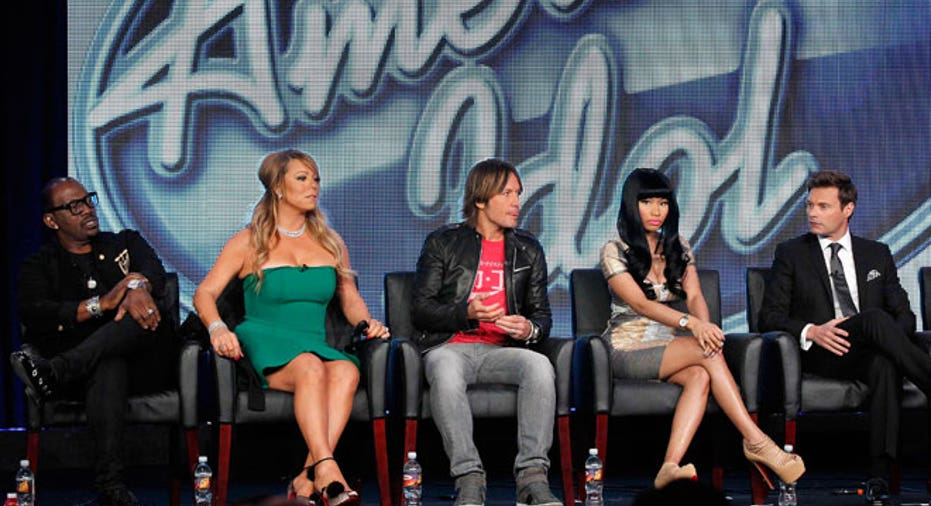Top 5 Mistakes That 'American Idol' Contestants Make

The millions of viewers who watch “American Idol” would almost unanimously describe the program as a singing competition. They’d probably say the most talented singers advance each week, and that the best singer is ultimately selected as the champion at the end of the season.
These fans of the show couldn’t be more wrong.
Truth is, “American Idol” is a sales competition. The singer who best sells his/her talents to his/her target customers (initially the four judges, and later, the judges and the show’s voting viewers) stands the best chance of winning. Of course, talent is essential in order to claim the “Idol” crown, but with the right sales strategy, a lesser talent could easily trump a superior talent who offers an inferior sales presentation.
Unfortunately, most “Idol” contestants don’t realize this key fact, and many make the same disastrous – and easily avoidable – sales mistakes each season, including:
No 1: Relying on gimmicks and dramatic backstories to advance in the competition.
Many contestants believe that an unusual, quirky, or unfortunate element of their life story will give them a competitive edge in their presentations, regardless of the quality of their singing. While these tales may be interesting, they’re no substitute for a strong performance.
Relevant sales tips: If you need to make excuses for the lesser quality of your product/service, or if you try to distract from any deficiencies by offering extraneous and irrelevant information, your prospects will notice, and you won’t close the sale.
No. 2: Choosing songs that don’t resonate with the judges.
Many contestants select songs to sing that are emotionally meaningful to them. While these choices may be personally important, they’re not always smart: to succeed on “American Idol”, contestants need to focus on pleasing the judges’ ears, not their own.
An argument can be made that the majority of the judges respond well to songs that are meaningful to them, in particular, songs that were influential in their artistic journeys. A quick calculation reveals some validity behind this assertion: three of the four judges - Keith Urban, Randy Jackson, and Marian Carey – have claimed that they were directly influenced by artists who were popular in the 70s, which is the era when their respective musical preferences were forming. Contestants who sing hits from this period – and sing them well - can potentially sway 75% of the judges’ opinions towards the positive, compared to a contestant who makes a more personal, non-70s song choice that may not connect as powerfully with the judges’ tastes.
Relevant sales tips: To close a sale, you must learn the specific needs, goals, and challenges of your prospects – and then explain how your product/service can be a solution to help your prospects meet their needs, achieve their goals, and overcome their challenges.
No. 3: Choosing songs for their group performances that weren’t originally sung by groups.
Many “Idol” contestants struggle with creating and learning appropriate song arrangements for their group performances. The reason why this task can be such a problem is because the songs that they pick don’t lend themselves to being sung by groups. (Recent attempts to group-ify the Grammy-winning solo hit “Somebody That I Used To Know” by Gotye produced a cringe-inducing variety of dreadful results.)
To make their search for the optimum group song more efficient, contestants should opt for hits that have lush, harmony-rich arrangements built into their original productions. This would make it much easier for them to master their parts and give them more time to perfect their performances.
Relevant sales tip: When preparing your client presentation, remember K.I.S.S. – Keep It Simple, Stupid!
No. 4: Choosing songs with the same energy as other contestants’ song choices.
In recent female solo performances, a succession of contestants sang songs that were slow, dramatic, and emotionally heavy. New Yorker Melinda Ademi flipped the script on this melancholy trend by energizing the room with her take on Jessie J.’s upbeat hit “Price Tag” – and in the process, quickly moved herself to the next round of competition.
Relevant sales tip: To make your presentation memorable, powerful, and unique, offer a well-executed approach with an original point-of-view that runs counter to what your competition is proposing.
No. 5: Singing original songs.
A select few (okay, make that very few) “Idol” contestants may have songwriting abilities, but for the most part, performances of their original compositions have been really painful to watch and hear. The most recent example of this would be the tortured tunesmithing of Kez Ban.
Bottom line, “Idol” contestants: you’re on the show to sing hit songs, not your songs. Eventually, with the right collaborators, you may have the potential to craft some strong tunes (case in point: Chris Daughtry). But for now, please accept this unpleasant truth: contestants who sing their own songs are literally wearing an “End My Journey Now!” sign around their necks, so for your own preservation, avoid performing them at all costs.
Relevant sales tip: The sales process is not about you. It’s about how you – and your product/service - can provide an exact solution that specifically addresses your clients’ needs, goals, and challenges.
“Idol” contestants have prepared their whole lives for the opportunity that the show offers them. If more of them realized that their success in the competition depends on how effectively they present their talents to the judges and the world, they’d have a much greater chance of closing the sale and achieving their dreams.
Rafe Gomez is a principal at VC Inc. Marketing, a provider of messaging, lead generation/sales support, and SEO content creation/p.r. services to business owners across the U.S. Follow him @vcincmarketing.



















